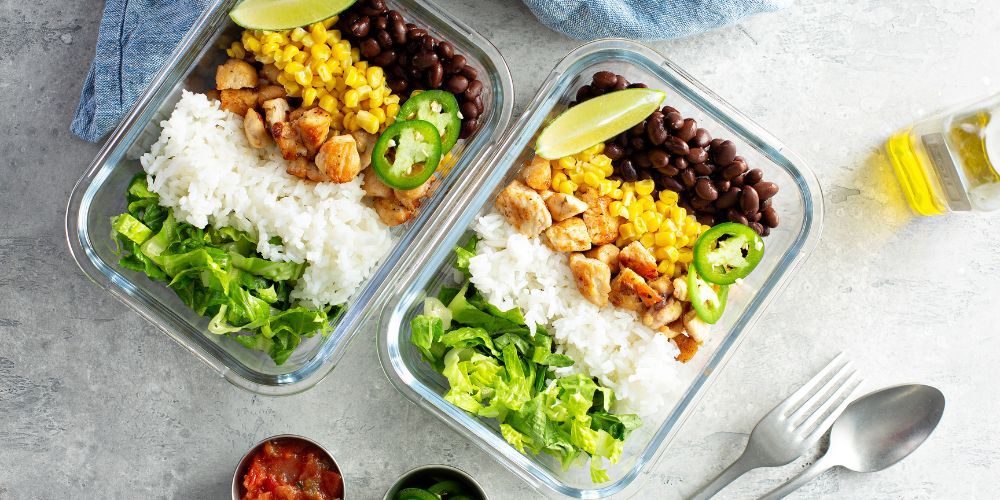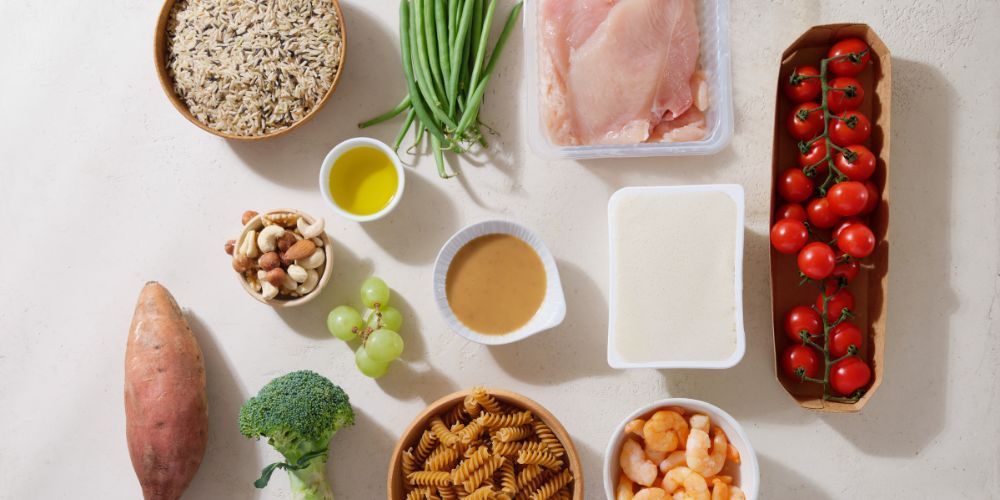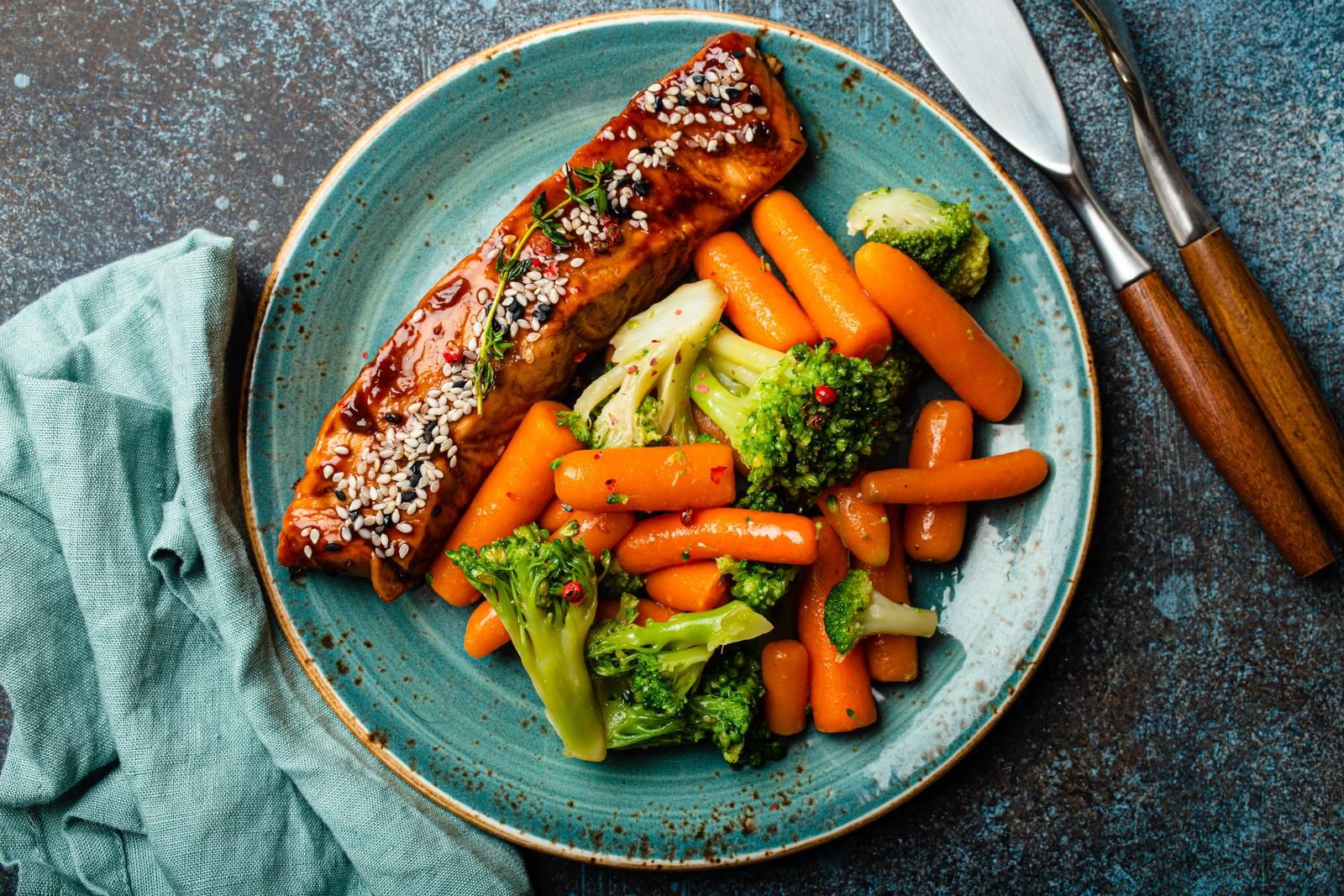What is Meal Prep and Why You Should Start Doing It

Meal preparation, commonly known as meal prep, is the practice of preparing and planning meals ahead of time.
This has recently gained popularity among busy individuals seeking to maintain a healthy and balanced diet.
The idea is to dedicate some time upfront to create nutritious meals, which can help save time, energy, and stress during the hustle and bustle of the week.
There are countless reasons why one should consider incorporating meal prep into their daily routine.
Not only does it help to avoid the temptation of unhealthy takeout options, but it also makes it easier to stay on track with weight management and maintain overall wellness.
Additionally, meal prepping can save money by cutting down on impulse purchases and allowing for better budget planning when it comes to grocery shopping.
Whether we're preparing meals for ourselves or our families, meal prep can be tailored to suit various preferences and dietary requirements.
The flexibility of this approach allows everyone to reap the benefits and enjoy a healthier, more organized, and less stressful dining experience throughout the week.
What is Meal Prep
Meal prep is a time-saving and convenient approach that allows us to prepare meals or dishes in advance.
Busy individuals often use this method to have their meals readily available throughout the week, eliminating the need to cook daily.
The key to effective meal prep is planning and dedicating some time to cook multiple meals at once, which can then be stored and consumed throughout the week.
There are various ways to approach meal prep depending on our preferences and dietary needs.
Some people like to prepare entire meals, while others may prep individual ingredients, such as cooked grains or proteins, to mix and match for different dishes.
We can tailor the meal prep process to our personal tastes and goals, be it weight loss, healthy eating, or simplifying our cooking routines.
The good thing is that meal prep doesn't require any complicated planning or tools. We only need some basic kitchen skills and time.
By having homemade and pre-prepared meals, we can avoid unhealthy choices, such as fast food or restaurant meals, and can stay on track with our nutritional goals.
And having a collection of well-balanced meals on hand will help us regulate what we eat and provide needed control when sticking to specific diet plans.
Here are some ideas for incorporating meal prep into our routine:
- Prepare large batches of staple foods, such as rice, quinoa, or pasta, to be used throughout the week.
- Cook and portion proteins, like chicken, fish, or tofu, in advance and store them in the fridge or freezer.
- Chop and store vegetables for easy access for salads, stir-fries, or snacks.
- Make use of time-saving tools, like slow cookers, pressure cookers, or sheet pan recipes to cook multiple dishes at once.
- Package and store meals in individual containers to ensure proper portion sizes and easy grab-and-go options.
Benefits of Meal Prep
Doing meal preparation comes with a variety of advantages, such as saving time and money, facilitating healthier eating choices, and reducing stress. In this section, we will explore each of these benefits in more detail.
Time and Money Savings
One of the most significant benefits of meal prep is the amount of time and money it can save.
By preparing our meals ahead of time, we can avoid the need for last-minute trips to the grocery store or resorting to fast food, which can be pricey.
Additionally, by planning and prepping our meals, we can take advantage of sales and discounts at the grocery store, helping us to stick to our budget.
We also save time by cooking several meals at once and reusing ingredients across different dishes, reducing overall cooking and cleaning time throughout the week.
Healthier Eating Choices
Meal prepping allows us to make healthier eating choices by giving us control over the ingredients and portion sizes in our meals.
Planning our meals in advance helps us stay on track with our personal diet goals and ensures we have a collection of well-balanced meals on hand.
This minimizes the temptation to resort to unhealthy options in moments when we’re short on time or feeling hungry.
As a result, meal prepping can contribute to an overall more nutritionally balanced diet, making it easier for us to maintain a healthy lifestyle.
Stress Reduction
Last but not least, meal prepping can significantly reduce stress in our everyday lives.
By having a plan in place and our meals prepared ahead of time, we can avoid feelings of anxiety and frustration that can arise from last-minute decisions about what to eat.
Furthermore, knowing our meals are ready to go not only saves us time but also eliminates the mental energy required to figure out what to cook each day.
This allows us to focus on other aspects of our lives rather than constantly worrying about meal planning and preparation.

How to Start Meal Prepping
Starting meal prepping can seem daunting at first, but with a little organization and some helpful tips, we can make it an enjoyable and beneficial part of our routine. In this section, we will discuss how to start meal prepping by planning our meals, grocery shopping, prepping, and storing.
Planning Your Meals
The first step in meal prepping is planning our meals for the week. This includes deciding on a menu, calculating the portions, identifying the ingredients we will need, and making a grocery list.
- Choose a variety of meals that can be easily prepared in advance.
- Ensure the meals are balanced and provide adequate nutrients for our dietary needs.
- Consider your schedule when planning the meals, taking into account the time you have for meal prepping and the days you want to eat particular dishes.
Grocery Shopping
Once we have our meal plan in place, it's time to hit the grocery store. To simplify the process, we can create a shopping list based on our meal plan.
- Organize our list by categories such as produce, grains, and proteins to save time in the store.
- Check for sales and discounts to save money.
- Consider buying in bulk for frequently used items or ingredients that can be stored for a long time.
A well-organized shopping trip will make the meal-prepping process smoother and more efficient.
You can save even more time by placing an online grocery order at your local store that will be delivered to you ready to for meal prepping.
Prepping and Storing
With our groceries in hand, it's time to start prepping our meals. The key to efficient meal prepping is multitasking and using our time wisely.
- Start by prepping ingredients that take longer to cook, such as roasting vegetables or cooking grains like brown rice or quinoa.
- While those ingredients cook, chop and prepare other components of our meals.
- Assemble your meals in containers or bags to keep them easily accessible and ready to go.

Proper storage is crucial for maintaining the freshness, quality, and food safety of your prepped meals.
- Make sure to use airtight containers or bags to prevent air exposure and contamination.
- Label your containers with the meal and the date it was prepped.
- Store meals in the refrigerator for short-term consumption, or freeze them for longer storage.
By following these steps, you can become a successful meal prepper, enjoying the benefits of time savings, better nutrition, and reduced food waste.
Meal Prep Ideas and Tips
Developing a meal prep routine can save us time, money, and stress. With a little planning and organization, we can make healthier food choices and avoid last-minute temptations.
In this section, we'll provide tips and ideas for recipes, containers, and storage, as well as timing and scheduling to help you get started with meal prep.
Meal Prep Recipes
When choosing recipes for meal prep, it's essential to select those with ingredients that will last throughout your planned meals.
We recommend focusing on recipes with a mix of protein, healthy fats, and complex carbohydrates. This ensures you have balanced meals that keep you feeling satisfied.
Alternatively, you can create your recipes by preparing different ingredients separately, so you can mix and match meals during the week. Some examples of meal prep-friendly lunch and dinner recipes include:
- Grain bowls with quinoa, roasted vegetables, and chicken
- Stir-fries with mixed veggies, protein source, and rice
- Mason jar salads with leafy greens, proteins, and a variety of toppings
Feel free to get creative in the kitchen, while also considering your dietary preferences and restrictions.
Containers and Storage
When it comes to containers, we want to ensure our food stays fresh and secure.
Invest in high-quality, leak-proof, and microwave-safe containers - this will make reheating and transporting your meals a breeze.
Glass containers are a great choice because they are durable, reusable, and less prone to staining or absorbing odors.
It's helpful to have containers of various sizes, so you can store different-sized portions and meal components separately.
Timing and Scheduling
Setting aside time for meal prep is crucial for success. We suggest designating a specific day of the week, like Sunday, to prepare all your meals in advance.
It's crucial to consider the cook times of each dish and prioritize cooking those that take longer first. Be sure to also factor in time for chopping and prepping any ingredients.
Another helpful tip is to break your meal prep tasks into smaller, more manageable steps. For instance, you can start with chopping vegetables and proteins, then move on to cooking grains and roasting vegetables. This allows you to tackle various tasks at once, making the entire process more efficient and less overwhelming.
Common Meal Prep Mistakes
As we delve into the world of meal prepping, it's vital to avoid some common mistakes that can hinder your success. Being aware of these errors will help us save time, money, and maintain a consistent meal prep routine.
First, many beginners tend to use improper storage techniques, leading to decreased food quality and freshness. To maintain the taste and nutritional value of meals, it's essential to use safe cooling methods and appropriate containers. For example, use airtight containers, glass jars, or reusable silicone bags to avoid your food spoiling and bacteria growth.
Another mistake is not prioritizing perishable ingredients in your meal plan. As mentioned on Livestrong, to avoid spoilage and food waste, design your weekly meal prep around fresh produce and meats. This way, you're using the most perishable items first before they go bad.
A common pitfall we may encounter is not allocating enough time for planning and prepping. It's crucial to properly estimate the time needed to create the meals and avoid multi-tasking, leading to burnout and inefficiency. Organizing your workflow by ordering the meal steps you follow can help save time and streamline the process.
Lastly, variety is the spice of life. To prevent boredom, it's essential to mix up your recipes and include different protein sources, vegetables, and flavors. Experimenting with new recipes will help you stick to your meal-prepping efforts and maintain excitement in your meals.
If you like the idea of preparing quick and healthy meals but don't think meal prep is for you, try the new Ninja Speedi Rapid Cooker and Air Fryer for quick, delicious, and healthy meals.
To find out more, check out our Ninja Speedi blog post here.

Final Thoughts
Incorporating meal prep into our routines can greatly benefit our health, time management, and finances. By planning and preparing meals ahead of time, we can maintain a balanced diet, reduce our reliance on unhealthy take-out options, and save money by purchasing ingredients in bulk and avoiding expensive convenience foods.
By engaging in meal prep, we can also gain more control over our portion sizes, supporting our personal fitness or weight loss goals. This regular practice enables us to develop healthier eating habits and eliminates the stress of deciding what to eat after a busy day.
Moreover, meal prep can be customized to meet our individual tastes and dietary requirements, ensuring that we enjoy a wide variety of satisfying meals. In the long run, this level of organization and planning sets us up for success in maintaining a consistent, nutritious diet.
Efficient meal prep does take some practice and commitment, but by exploring different recipes and strategies, we can create a routine that seamlessly aligns with our busy lifestyles. Ultimately, embracing meal prep can lead to a healthier, more balanced approach to eating and an overall improvement in our well-being.



